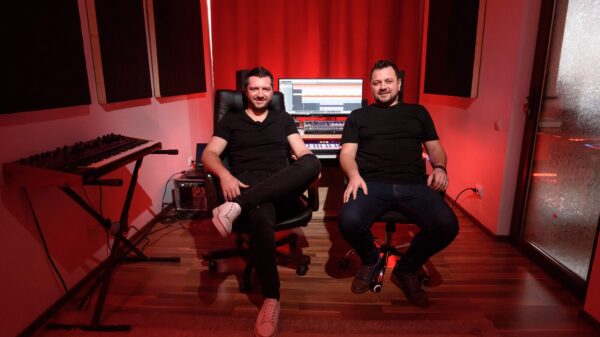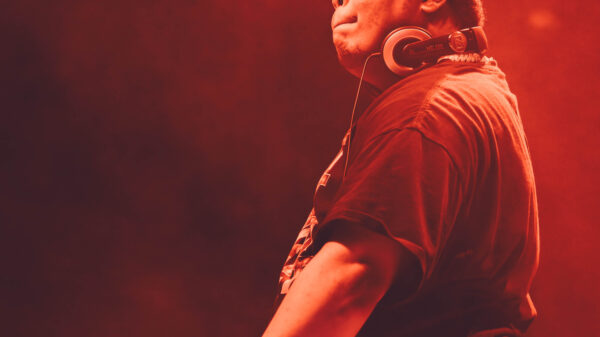As part two of our “Holy Shit You're Graduating and Have No Job?!” series, we're bringing you tons of information about working in the world of EDM. This week, I sat down for a chat with Watse de Jong, Artist Manager at MusicAllStars Management (a division of Spinnin Records). He was gracious enough to talk about life on the road and what it's like to be in the music business.
See Also: Music Jobs Near You
“Day to day, we [artist managers] spend time responding to artists’ emails, planning their schedule, listening to their unfinished tracks, helping them create a strategy for their career.”
Of course, all artists are different – different personalities, different ages, at different points in their career. It can be hard to be advisor, friend, manager, and in some cases a parental figure to these producers. “I travel a lot with the artists, especially if they are younger. When you're young and famous you have a lot of people who want a piece of you, and it's not often clear whom to trust. So we help them navigate that world. One of the more famous artists whom Watse has worked with is Martin Garrix, an artist who just graduated high school this year. Watse says of Garrix, “He’s from a very warm family, loves to make music but also loves djing and going out with his friends. We help to make sure he has a balance between his personal life and career.” Other artists, like the Firebeatz and DubVision, came to MusicAllStars Management after college, production schools or jobs. Nevertheless, Watse says it can be important for their artists to get an education.
“The fame… can all be over in a couple of years. And not all producers are lifelong, not all of them will be fortunate enough to maintain a career for a decade.”
About his own life on the road, Watse is introspective but happy with his path thus far. “It can be tough, traveling, but I love to see all the different cultures and places, and getting to meet all these different people along the way. It's very inspiring for me!” Seeing artists that he helps to shape their career, he says, is very rewarding. “Signing young talent and helping them build something from scratch is the most exciting, you never know what can happen. And we ask ourselves, how can we create that big break? How can we help him make the breakthrough track? It always comes down to the music.”
Related: How To Become an Artist Manager
Always, I asked, a bit skeptical. Isn’t music like real life, where sometimes people who deserve it never become famous? Watse nods. “There are tons of great producers that wont make it because they have something that doesn't work in their favor, or the timing wasn't right. Well… the team around you is important. One person can’t do it all.” I press him for some examples. “Steve Aoki and Dim Mak– it’s incredible branding. Everything – the merchandise, the graphics, the events. Every detail is really well done. I have a lot of respect for their execution.” What happens after the artist makes it big though – after their first huge track? Watse says there’s still plenty to manage, which is why building a team around the artist is essential. Think of a tour manager, booking agent(s), business manager, Camera guys etc. Someone has to oversee them all.
“We're responsible for coordinating the booking agenda, going back and forth with the agents, routing, the budget for sfx and supervising the road crew to make sure everything runs smoothly. Beyond that, we can help artists with; setting up a radio show, perhaps starting their own label, coordinating merchandise and endorsement deals. Helping the artist establish their own look and feel not just for their music but one that represents their personality as well.”
Nevertheless, when an artist first comes to him, they don't have a team- they have maybe a handful of remixes and a few originals. How can he tell if someone has potential – the magic? Watse says being open to all kinds of music comes first. “You have examples of people who have classical music training, and are successful. You have people with no training whatsoever, and will make it big their first 6 months. We are open to all kinds of backgrounds, with the common denominator being commitment.” Additionally, Watse also advocates that his DJs reserve some of their income for later – whether that is for an education or retirement. Overall, the artist managers are a tough combination of advisor, parent, friend, and boss.

“Sometimes we butt heads, absolutely. But we have a lot of fun too.”- Watse with Ummet Ozcan and Martin Garrix
Wrapping up, I asked Watse who his ideal artist is – who would he love to be the manager for? “The ideal artist is someone who you have worked with for years and who you've grown with. Someone who is very focused and involved in his career. At the end the artist is the CEO of his own company.”

However, with all the artists on the roster at MusicAllStars mgmt, Watse’s schedule is pretty full. As my final question I asked if he had a favorite. Like any good parent, he responded just as he should –
“I love all of them equally. I want all of them to achieve their goals.”
Connect with Watse on Social Media:
www.twitter.com/watsematter
www.instagram.com/watsematter
If you think you'd be interested in a career in artist management, you can start with these:














